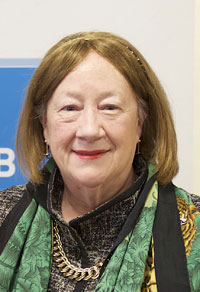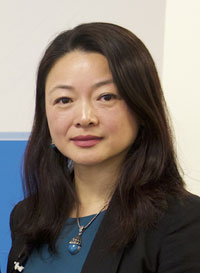 |
|
Mary Wadsworth Darby |
"They need to know about the opportunities," said Darby, emphasizing the word "know". "China is now an active place," she said. "A place where things are happening."
Darby is the senior director of the Cheung Kong Graduate School of Business (CKGSB) Americas. Since 2005, she has also been a senior research scholar with the Chazen Institute at Columbia Business School, specializing in China's economy and financial system.
Darby suggests Chinese companies go directly to foreign universities to recruit, or hold job fairs in the major cities.
"They can have a nice event at the Mandarin Oriental," she said, referring to the five-star luxury hotel in New York, with headquarters in Hong Kong.
A few Chinese companies already have implemented the strategy. In the past year, the CEO of Anbang Insurance, the Chinese insurer that bought the Waldorf Astoria New York hotel in October 2014, held a recruitment event at Harvard University.
The chairman of Hainan Airlines taught classes on the Harvard campus.
The leading Chinese phone maker ZTE toured a handful of top American universities.
"Tell them what job is available," Darby said. "They are always attracted to the job."
Based on her observations, Darby said there is a need for foreign talent in many professions in China.
"Researchers, engineers, Internet people, journalists, lawyers," she said. "It's important to be very clear with the qualifications. Be specific about what language skill is needed."
 |
|
Sun Baohong |
Sun Baohong, the dean's Distinguished Chair Professor of Marketing and associate dean of global programs at CKGSB, pointed out some practical issues for China and the companies to address, including working hours and residential status.
Sun said she was glad that China will ease the permanent-resident application process for foreigners and provide them with better services. It means more foreigners will be able to stay, and overseas Chinese have the option to go back.
Sun suggested that the Chinese government be more transparent with its plans and educate the foreign talent on specific policies that may benefit the group.
Before joining CKGSB in 2011, Sun was a marketing professor at the Tepper School of Business at Carnegie Mellon University. She said her years living in the US taught her the importance of family time to Americans.
"Here most people get off at 6 pm, and they want to spend time with their family," she said. "Chinese business owners should keep that in mind."
She agreed with Darby on the importance of education for foreign talent, not only the opportunities but also the culture.
"By learning about how China works, they will have more innovative ideas and will better adapt to the working environment," Sun said.
hezijiang@chinadailyusa.com